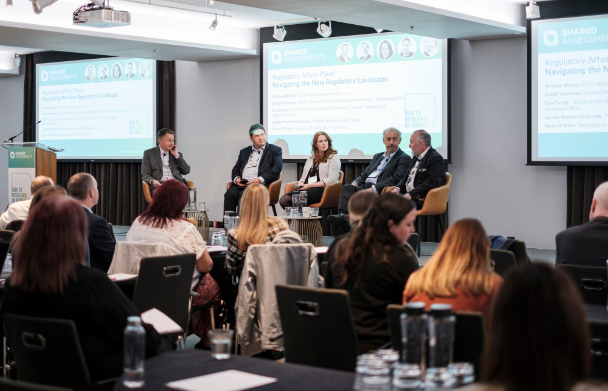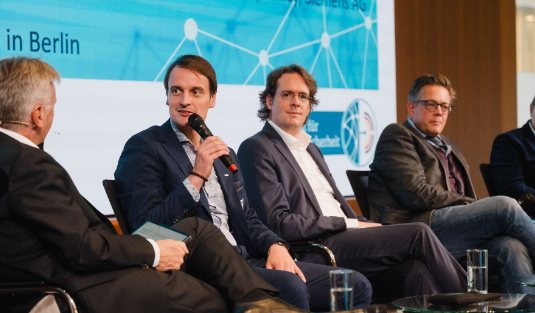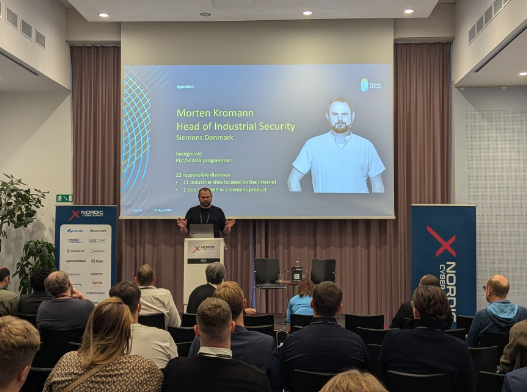• Digital Trust Forum and Charter of Trust to merge
• Bosch and Deutsche Post DHL Group join Charter of Trust
• Associated Partner Forum further growing with CyberNB, Cyber Peace Institute, Cyber Readiness Institute and Global Cyber Alliance
The Charter of Trust (CoT) and the Digital Trust Forum (DTF) are to join forces and merge under the Charter of Trust banner to form a joint initiative for greater cybersecurity and digital trust. With this the Charter of Trust also intends to devote more attention to the topic of trustworthy artificial intelligence (AI) in the future.
The CoT was launched at the Munich Security Conference in February 2018 by Siemens and eight partners from the industrial sector. The DTF was formed in Berlin in May 2019 as an initiative of Bosch. With that Bosch will also join the CoT. The world’s leading logistics company Deutsche Post DHL Group has decided to join the cybersecurity initiative in addition, bringing the number of Charter of Trust members up to 17 four years after it was first signed.
“Overcoming reservations and building up trust will be crucial success factors in digital business – and this is more effective with the two initiatives working together. In addition, Bosch brings to the Charter of Trust its deep expertise in artificial intelligence,” said Dr. Tanja Rückert, Chief Digital Officer at Robert Bosch GmbH and a new member of the Charter of Trust’s Board of Directors.
“Cybersecurity is the key to building people’s confidence in digitalization,” said Cedrik Neike, Member of the Managing Board of Siemens AG and CEO Digital Industries. “And we’re significantly stronger if we work together to make our networked world more resilient. By merging the two initiatives, and by bringing on board our new partners, the Charter of Trust will gain even greater diversity and broaden its perspective to cover different industries and countries.”
“As a company, we inherit a long tradition of secure and fast transport of confidential information. But for us as a company, privacy of letters no longer applies exclusively to the postal service. In the digital environment, we also effectively protect our customers’ information along the entire supply chain. By becoming a new member of the Charter of Trust, we want to embrace exchange on supply chain security, because ultimately security incidents may have severe implications on all parties involved,” said David Thornewill, Group CISO of Deutsche Post DHL Group.
Over the last four years, the Charter of Trust has already launched a wealth of measures to enhance cybersecurity – including “Security by Default”, which takes cybersecurity into account right from the design phase and provides products with preconfigured security measures. In addition, the CoT partners have defined established baseline requirements for their suppliers in order to further enhance cybersecurity along supply chains. The main focus in the next phase will be to implement a cross-industry approach to the evaluation of supply chain security. In this context, the growing Charter of Trust community will provide mainly small and medium-sized enterprises with information, training and other resources.
At the Munich Security Conference in February 2018, Siemens and eight partners from industry signed the world’s first joint charter for greater cybersecurity. In addition to Siemens and the Munich Security Conference, the signatories include AES, Airbus, Allianz, Atos, Bosch, Dell Technologies, Deutsche Post DHL Group, IBM, Infineon Technologies AG, Mitsubishi Heavy Industries, NTT, NXP Semiconductors, SGS, TotalEnergies and TÜV SÜD.
The CoT initiative also collaborates regularly with various global authorities and scientific institutions to drive forward the topic of cybersecurity internationally and achieve harmony across national borders and organizational boundaries. Furthermore, the CoT initiative has created the Associated Partner Forum, which institutions such as Germany’s Federal Office for Information Security (BSI), the Spanish National Cryptologic Center (CCN), TU Graz and the Hasso Plattner Institute for Digital Engineering GmbH (HPI) have joined. The Canadian Centre for Cybersecurity, Cyber Readiness Institute, CyberNB, Cyber Peace Institute, Global Cyber Alliance and Japan’s Ministry of Economy, Trade & Industry (METI) and Ministry of Internal Affairs and Communication (MIC) have also recently signed up as associate partners.
The global economy is beginning to realize that increased networking goes hand in hand with an escalating risk of cybercrime: the Allianz Risk Barometer found that companies around the globe consider cyber risk as their number one threat in 2022.
Siemens, AES, Airbus, Allianz, Atos, Bosch, Dell Technologies, Deutsche Post DHL Group, IBM, Infineon, MHI, MSC, NTT, NXP, SGS, TotalEnergies and TÜV SÜD


You may also like

UK/EU Summit - “Risk to Resilience”
💡Under the theme “Risk to Resilience” the first event of this series was held in London and brought together professionals from different industries and regions. Detlef participated in the panel about the complex regulatory landscape and emphasized that new legislation like the EU AI Act, DORA and Hashtag#NIS2 continue to push the standard of care on cybersecurity and other risks.
Thanks to Shared Assessments for organizing such an amazing event and inviting the Charter of Trust to participate in this high-class panel alongside Andrew Moyad, CEO at Shared Assessments.


36th Cyber Security Day: Working together for more resilience in the digital future
🌐On 26 September 2024, the Bundesamt für Sicherheit in der Informationstechnik (BSI), Alliance for Cyber Security, and the DIHK invited experts, companies, authorities and political decision-makers to jointly strengthen Germany's cyber resilience.
The event was a great mix of policy debate, practical exchange, workshop and networking under the motto ‘Stronger Together: Greater Resilience through Cooperation’.
✨ One of the highlights of the day was the closing panel with Claudia Plattner, President of the BSI, Dr. Stefan Saatmann, Deputy Head Berlin Office at Siemens, Konstantin von Notz, Member of the Bundestag for B90/Greens, and Alexander von Gernler, German Informatics Society, interchanging ideas to foster resilience through collaboration. Initiatives like the CoT baseline requirements and its huge potential for international harmonizing cybersecurity regulations were discussed as well.
Let’s all work together so that closer cooperation between the BSI and businesses bring more tangible effects to increase digital resilience. Special thanks to Nils Hasenau for providing the excellent photos and also to Simon Ulmer and Ralf König for attending the event.


Nordic Cyber Summit 2024
What a great opportunity for Morten Kromann, Head of Industrial Security Denmark at Siemens, to present the Charter of Trust perspective on cybersecurity regulations like Hashtag#NIS2 at the Nordic Cyber Summit in Copenhagen.
This year the summit was again a formidable event to engage with top cybersecurity experts, share insights, and discuss strategies to navigate the ever-evolving threat landscape in the Nordic region with the theme “Fortifying the Future: Building Cyber Resilience in a Transformed World”.
A main aspect highlighted by Morten was the discrepancies between the NIS2 directive’s incidents reporting timeframe and related provisions adopted in other legislations. These regulatory overlaps create difficult compliance environments for industry and costly operational pressures which add to the fragmentation of the market instead of harmonizing it. That is why the Charter of Trust emphasizes streamlining reporting requirements stemming from these different legislative frameworks and developing single entry points for reporting on the national level.
These and more points have been discussed during our Security-by-default Webinar on the 29th of October. See the events section on this website to find the recording of the webinar.



